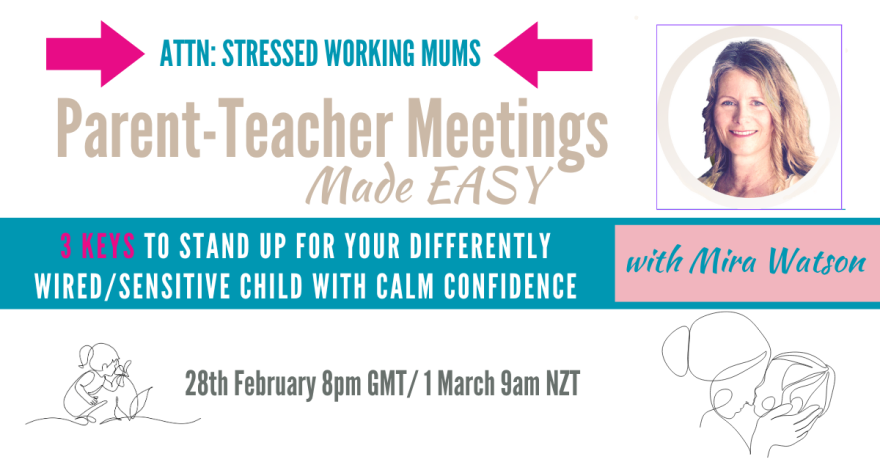FROM MY HEART
Was it a gentle beginning to the year for you? I hope so. Mine was not... It hit me full clout like a rolling snowball. And yet it has left me feeling alive and inspired. Some things have been shaken out and lost and others kind of compacted in an solidified. Right in the centre is the importance of letting children be. Letting ourselves be. Letting everyone be who they are. I've got a bee in my bonnet. I'm so excited I'm delighted, and I just can't keep it in.

As a collective - and that includes children and parents - we seem to be going through a death. And at the same time a rebirth. The feeling in the birth canal can be very tight, constrained and unknown. Uncomfortable and at the same time focused and directional. We are seeing so many shifts at the political, social and spiritual levels. The general public is becoming more aware that "normal" is a fiction which hardly anyone fits let alone aspires to anymore. And certainly in terms of children, their behaviours and their learning curve, the idea is outdated. I feel so deeply that the time is coming and nearly here where every child can be honoured for who they are and supported to be that. And this will change our whole world radically. We as adults - the ones who can read this newsletter - are the ones who can birth this whole adventure. And in a way we have the hardest task because we all went through the school system that conditioned us to obey and conform, to put our creative selves and our joy on hold for the sake of obedience, approval and future gains. And yet we also have the biggest potential reward: to see a number of the current young generation make it through whole, their sense of joy in being alive, their curiosity and their drive intact, and knowing that they can do anything they set their minds to - and that supporting life, beauty and authenticity ranks high above making money. This is the generation that can take us into unknown territory, and by having the courage to hold the door open into the unknown, we are the ones who can allow them to got there. The time has come. And if you're still reading, this month's article focuses on schooling, and how to get your highly sensitive and differently children through it relatively intact...
Fizzy Coca Cola Bottle Syndrome - A Parent's guide to HS Children and how School affects them
Do you have a child who comes home from school and explodes or melts down within minutes? Does it take you the whole rest of the evening to get them back on an even keel? Yet the teachers say your child is a model student?
Well if that's the case then you are not alone - it even has a name now - Fizzy coca cola bottle syndrome. It's just one of the many delightful side-effects that mainstream schooling can and does have on highly sensitive and other neurodivergent children. At least knowing this is actually a thing might make you feel less of a bad parent - which is my intention.
If you've read any of my blogs on highly sensitive children and their needs, you will already know that mainstream schooling isn't designed to accomodate these children. It doesn't meet most of their basic needs - for calm, quiet, downtime, slow, gentle routine, plenty of time in nature, breaks, regular food and drink to prevent blood sugar lows, and so on.
The other hidden aspect of highly sensitive and some neurodivergent children also is their people-pleasing tendency or perfectionism, which leads to masking their real feelings and experience. What this looks like in practice is a perfect, quiet child who will try to conform and meet all expectations at devastating inner cost to themselves. They may get overwhelmed daily to the point of trauma - where the nervous system shuts down and they stare blankly into space, unable really to respond or function - just carrying out robotic surface behaviour - and nobody would notice because they can be such incredibly good actors. Whist a child psychologist or bodyworker like myself may be able to spot these children in a classroom, teachers are not trained to notice when children have left a regulated nervous system pathway and are headed into trauma or shutdown. And this is why when children get home they can explode sometimes. Or often. All the undigested unprocessed emotions, the things that happened that weren't resolved, the hurt feelings, misunderstood lessons, comments, actions all come to the surface at once. Children will experience an internal eruption of emotion and sensation as layers and layers of the day's experience try to come into their awareness for processing all at once. They often won't know why, or even be able to verbally identify a key upset or incidence because it's such an intensely overwhelming experience.
Most children find ways to recover - whether through tantrums, quiet creative activity or silence. But it can be very hard for a parent who is repeatedly told by a school that their child is a model student - to reconcile the difference and understand.
A simple metaphor is a wife or husband who spends 8-7 at the office and needs half an hour to decompress when they get home. Most men (and also working women) don't like or tolerate being talked to in the first minutes when they return from work, when they go through their unwinding and processing routine of a shower, drink, exercise or whatever it is they do to leave the day behind and switch roles and focus. Children haven't got that conscious capacity - so parents offering a snack and the chance to run around outside, or play, or just chill can be a starting point to learn about making that transition.
If as parents we are interested in addressing the root of the fizzy Coca Cola bottle issue then we can ask ourselves what causes the build of such intense pressure - and what can be done to alleviate it.
This is where things get really interesting in an institution built for the neuro-normal or general, when you are trying to support a differently wired child. Many children will be unable to tell you verbally that the classroom is too loud, the children sit too close to them, the anxious or the angry child next to or in front of them floods them with emotion, they can't stand the smell of egg sandwich or the teach speaks nastily and they are scared. This is just the tip of the iceberg for a highly sensitive child.
Part of what makes it hard is that a highly sensitive child in a standard classroom can see that they other children are coping ok, laughing, throwing things, mucking around - and they want to fit in. This may have them inadvertently invalidate their own experience right from the get go so that they don't even realise what their discomfort is. For example they try to put up with the noise, chaos, exhaustion that comes from nervous system overwhelm and just act normal to get by and not be noticed. They don't want special attention. Being different is the worst thing often that can happen to school children - because then they get picked on and bullied.
The problems for highly sensitive children in a school environment are so massive that really they beg the question of whether these children should be in a school environment at all - and whether home schooling may not be a better option to increase their chances of learning and growing up mentally healthy. However that's another whole separate discussion.
There are some measures that help though. Wax earplugs or noise cancelling headphones can be a life saver as the volume the child gets is muffled but still plenty enough to hear and respond. It will help them feel calmer. Many schools now know about these children and a have a quiet room or library area where children can go for ten minutes on their own for downtime to recover if they need it. And others will organise this if you go and talk to them about it. Teaching your children physical movements and phrases to set boundaries and repel bullies, or just other children that they don't want too close is a great investment of time and energy too. Sensitive children don't like displeasing others and often end up as doormats and feel very guilty at being what they see as "unkind", which is actually just looking after themselves. Also keeping a careful eye on your child's school diet is essential - HS children tend to be much more stable emotionally on a Wholefood diet without chemicals, sugar, food colourings and often wheat. This gives them a much better chance of getting through the day.
And of course which teacher they get can make or break their experience. Of course it's luck of the draw whether your child gets a kind, gentle, softly spoken teacher that they feel safe with. But it's essential if they are even to be willing to go to school without major daily anxiety and tantrums. And yet you can influence this by asking and requesting this before the teachers and classes are chosen for the next term or year.
Usually sensitive children find things easier as they get older. Their ability to speak up for themselves, their boundaries and their tolerance grow and strengthen. What it's important to try to avoid though is that they become less and less like themselves and more like the others just to get by... If you are HS or have an HSC you already know the incredible value that these differently wired humans bring to the planet in terms of the emotional intelligence, artistry, understanding of plants and animals, empathy, innovation and more. So we don't really want that being normalised and watered down...
I'm teaching a whole workshop for parents on how to navigate the school system and when to try to get extra help for their children at school this month. If you have no idea what to say to your child's teacher about high sensitivity, what to ask for or where to start then here's your resource. Details are below, and you're welcome to join! I'm sure I'll be learning as much from you as you do from me. And I'm very much looking forward to it...
COOL RESOURCE
Gratitude is the Attitude. Easily accessible to everyone and anyone, the more I practice this every day the happier I am and the better things go in family life. Start with the little things - I wake up and say 3 gratitudes, and then another 3 before sleep. I am grateful for my soft bed, my cat and a new sunrise...
UPCOMING EVENTS
If you'd like to find out more about 504s, IEPs, HECs and how to take action to support your children in the school environment so they can find calm and balance in themselves and grow developmentally, please book your ticket now. Even if you would just love to know how you can raise your HSChild's needs to the teacher without sounding like an emotional basket case or a helicopter parent, you will find this Masterclass useful. And its FREE! I'd love it if you spread the word to parents and friends who might be interested. It will be an informative, and as usual also experiential Masterclass. You will come away with embodied knowledge, and feeling different.

CONNECT WITH ME
Facebook: https://www.facebook.com/EmpatheticParents/
Instagram: parentingsensitivechildren
LinkedIn: https://www.linkedin.com/in/mira-watson-msc-4ab1a6102/
Blog: www.mirawatson.com
|